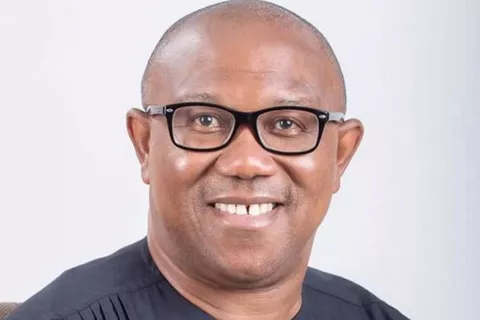Economy
Nigeria’s refinery crisis: Lokpobiri’s promises or empty talk?
DDM News

The Minister of State for Petroleum Resources (Oil), Heineken Lokpobiri, has emphasized the need for local refineries to reduce fuel prices.
According to Diaspora digital media (DDM) he stated that expanding domestic refining capacity is key to lowering Nigeria’s reliance on imported petroleum products.
Lokpobiri highlighted the crucial role of the downstream sector in the nation’s petroleum industry and overall economic development.
He assured that the Federal Government remains committed to optimizing the country’s refining capacity for long-term economic benefits.
The minister made these remarks while hosting Mrs. Joyce Akabogu, CEO of OTL Downstream Development in Africa Ltd/Gte.
Akabogu led her team on a courtesy visit to the Ministry of Petroleum Resources to discuss industry collaborations.
According to an official statement by OTL, Lokpobiri observed that the downstream sector is often undervalued by industry players.
He stressed that this segment holds significant revenue potential and contributes greatly to the national economy.
Lokpobiri pointed out that crude oil sales generate about $70 per barrel in revenue.
However, he noted that refining crude oil into its derivatives could triple the income from a single barrel.
He assured that the government is working toward increasing in-country refining capacity to boost economic gains.
This commitment, he said, is evident in the recent approval of additional refinery licenses.
The government is also providing ongoing support for existing refineries to enhance production levels.
Lokpobiri reiterated that President Bola Tinubu’s administration firmly believes in strengthening local refining capacities.
He argued that achieving this goal would reduce dependency on imported refined petroleum products.
A competitive refining sector, he claimed, would lead to a significant drop in fuel prices.
The minister asserted that lower fuel costs would benefit all Nigerians in the long run.
He also defended the removal of fuel subsidies as a strategic move to improve Nigeria’s refining sector.
According to him, this policy will help the country become a net exporter of refined petroleum products.
On her part, Akabogu explained that her visit was linked to preparations for the OTL Africa Downstream Energy Week.
She stated that the event aims to strengthen collaborations within the downstream energy value chain.
She emphasized that it would serve as a platform for fostering growth and innovation in the African energy market.
In response, Lokpobiri expressed full support for the upcoming OTL Africa Downstream Energy Week.
He noted that, unlike broader energy summits, this event focuses specifically on the downstream sector.
According to him, Nigeria is well-positioned to host such an important gathering.
He praised the event organizer for their early preparations, describing it as a sign of professionalism.
The minister stated that proactive planning would ensure the event’s success in driving industry growth.
Lokpobiri confirmed that he and various petroleum agencies would actively participate in the 2025 edition.
He expressed optimism that the event would contribute to the sustainability of Nigeria’s energy sector.
Despite these assurances, many Nigerians remain skeptical about the government’s promises on refinery development.
Years of unfulfilled commitments have led to growing frustration over Nigeria’s persistent fuel crises.
Critics argue that without concrete action, these promises may remain empty political rhetoric.
For Diaspora Digital Media Updates click on Whatsapp, or Telegram. For eyewitness accounts/ reports/ articles, write to: citizenreports@diasporadigitalmedia.com. Follow us on X (Fomerly Twitter) or Facebook











